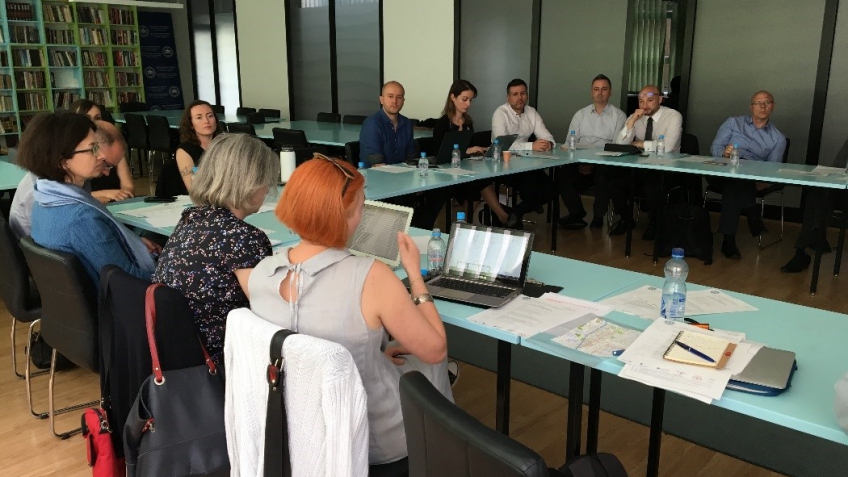



 ETN
Gyors linkek
Kapcsolat
ETN
Gyors linkek
Kapcsolat
 Studienstart
Ösztöndíjak
Szakok
Ph.D. képzés
Jelentkezés
Alumni
Studienstart
Ösztöndíjak
Szakok
Ph.D. képzés
Jelentkezés
Alumni
 Hírlevélre feliratkozás
Hírlevélre feliratkozás


The workshop on “Regions and Identity: Comparing Western Balkans and the Visegrad Four” took place at the Faculty of Political Science at the University of Sarajevo on the 10th of May 2019. The event was open to the public. The workshop is part of a project funded by the International Visegrad fund, titled “Understanding Identities and Regions - Perspectives on V4 and WB”. The publication of an edited volume is the objective of the project.
The workshop started with some welcoming words from the Dean of the Faculty of Political Science of the University of Sarajevo. Thereafter, Christina Griessler from the Andrássy University Budapest gave a short introduction to the background and the general themes of the project. Then, the first panel presented their papers on the discourses in relation to identity. Kinga Anna Gajda from the Jagiellonian University Krakow gave an overview of identity and identification, focusing on the question of “Orientalisation” of the Eastern European identity. This presentation was followed by a paper presentation by a colleague from the Metropolitan University Prague, Ladislav Cabada, on the link between region and identity. After each panel Adam Balázs, Sofia University St. Kliment ’Ohridski’, gave feedback on the individual presentations.
The second panel addressed elements, which are shaping identities in the V4 countries. Ondřej Daniel, Metropolitan University Prague, spoke on the issue of migration and the Czech cooperation with the other V4-countries on that issues. Andrea Schmidt, Pécs University, in her paper addressed the layers of identity and their relevance to regime change in Hungary. The third panel took a look at the elements shaping the identity in the Western Balkans, such as religion, presented by Esref Kenan Rašidagić, University of Sarajevo. Followed by Tamara Trošt, University of Ljubliana, who demonstrated how identity politics has entered history and geography textbooks in the Western Balkans. Nikola Zečević, University of Donja Gorica, Montenegro, spoke on the importance of state language and its impact on the development of national identity.
After the final feedback session, the participants and the audience had time to ask questions and discuss some of the presented topics and issues.
The main aim of the workshop was to bring all the authors of the planned edited volume together and to present their work in progress. A reviewer was present, whose task was to give immediate feedback on the presentations and the overall structure of the book.
Christina GRIESSLER